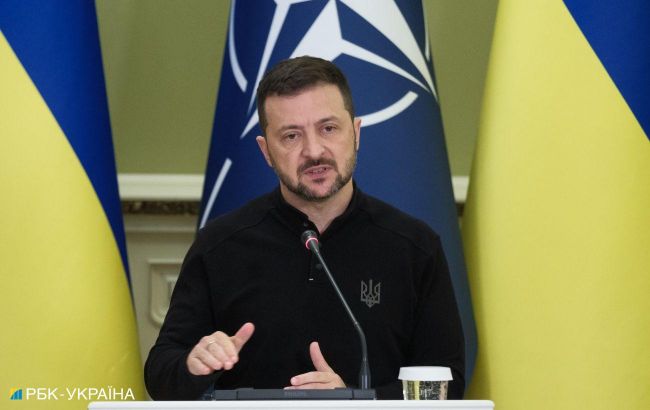Zelenskyy: There will be no agreement between Ukraine and Hungary without NATO clause
 Photo: Ukrainian President Volodymyr Zelenskyy (Vitalii Nosach, RBC-Ukraine)
Photo: Ukrainian President Volodymyr Zelenskyy (Vitalii Nosach, RBC-Ukraine)
Ukrainian President Volodymyr Zelenskyy clarified when Ukraine could sign a bilateral agreement with Hungary. He emphasized the importance of a NATO clause, stated President during a press conference.
Zelenskyy emphasized that a bilateral document includes not just what one party wants, but what is essential for the security of both the present and future.
“It’s about both parties. For us, support for Ukraine in the EU and NATO from Hungary is important. Currently, there is no Hungary's support for Ukraine in NATO in the document. That is why, the document has not been signed. Full stop,” he stressed.
At the same time, Zelenskyy explained that if Ukraine and Hungary respect each other, there should be no questions.
“Ukraine supports Hungary’s membership in both the EU and NATO. That’s my position toward you. If you ask me anything about Ukraine’s position toward Hungary, you’ll get a quick answer. We’re ready to ensure there are no issues between us. But if the Hungarian side has questions on any Ukrainian issue, I think it's not right. For example, wait, there are questions concerning the EU, wait on NATO, because these are the red lines concerning Russia’s reaction. It can’t be like that. A bilateral agreement is about respect. And whether you see me as an equal partner,” Zelenskyy concluded.
The bilateral agreement with Hungary
Last month, Zelenskyy revealed that Ukraine and Hungary were preparing a bilateral document regarding future relations, which includes a clause on Ukraine’s NATO membership.
However, Hungary’s Ministry of Foreign Affairs stated that they would not include Ukraine’s NATO membership in the agreement.
Summit in Hungary
Today, for the first time since Russia’s full-scale invasion, Zelenskyy visited Hungary. He attended the European Political Community (EPC) summit, which will be attended by more than 40 leaders from almost all European countries.
This visit to Budapest was at the invitation of Hungarian Prime Minister Viktor Orbán, whose country currently holds the EU Council presidency.

